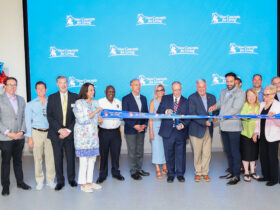A new diagnostic and treatment program for gastroesophageal reflux disease (GERD) focuses on patients’ specific symptoms to help ensure the best outcomes.
The Gastroesophageal Reflux and Motility Program launched by Hackensack Meridian JFK University Medical Center in Edison, N.J. also helps GERD patients with other motility disorders that affect the gastrointestinal tract.

Dr. Annie Laure Benzie, M.D., a fellowship-trained, board-certified general surgeon, is leading the program and will offer a presentation at 5:30 p.m. on Tuesday, April 4 at JFK University, Social Hall, 70 James St., Edison. The presentation is also being held virtually.
“GERD is common, affecting about 20 percent of adults in the U.S., and it can compromise quality of life and have serious, long-term health consequences if not addressed and treated properly,” said Dr. Benzie, “Our program will provide essential support and services to patients in our local communities so they can manage GERD and live healthier lives.”
The new program will use leading diagnostic tools and equipment to determine causes of GERD symptoms and treatment plans based on patients’ specific diagnoses. The goal of the program is to set up patients with the best treatments for their condition such as lifestyle changes, dietary changes, medications, and potentially surgery.
There are numerous signs of GERD, but the two most common symptoms are heartburn and regurgitation. Dr. Benzie notes that difficulty swallowing, chest pain, cough, laryngitis, dental erosion and asthma can also be indicators of GERD.
There are also multiple categories of GERD including non-erosive reflux disease, sometimes known as NERD, erosive esophagitis, as well as Barrett’s esophagus. Non-erosive GERD is the most common, making up about 60 to 70 percent of all cases.
Barrett’s esophagus, when the lower portion of the esophagus is damaged by repeated exposure to stomach acid, is more common in people with long-term GERD. Barrett’s esophagus is one of the most serious types, as it could lead to esophageal cancer.
Dr. Benzie notes that anyone who has already made lifestyle changes and dietary adjustments but still suffers from GERD should consider consulting an expert.
To register for the presentation by Dr. Benzie on “How to Manage Your GERD,” click here.














